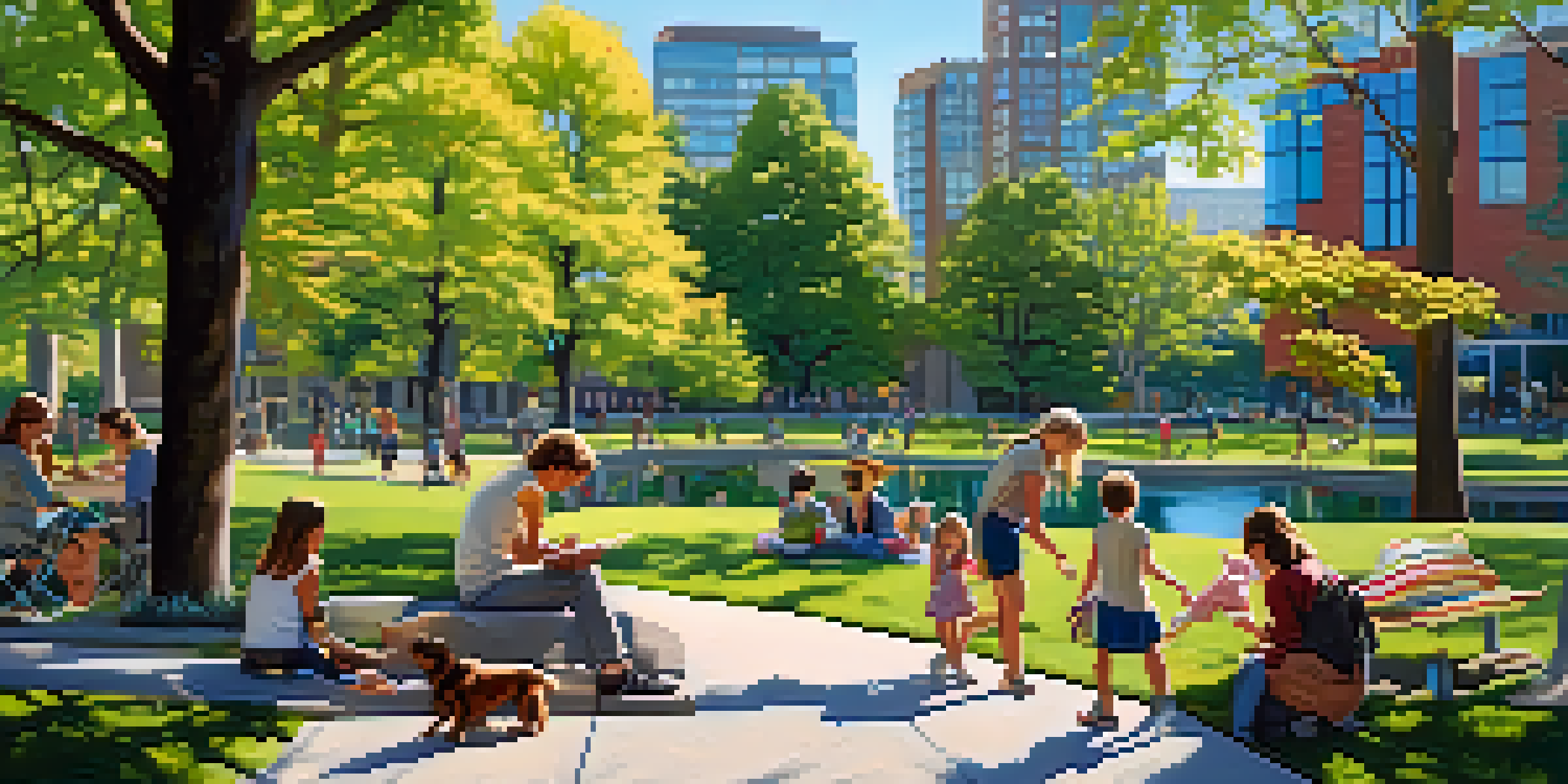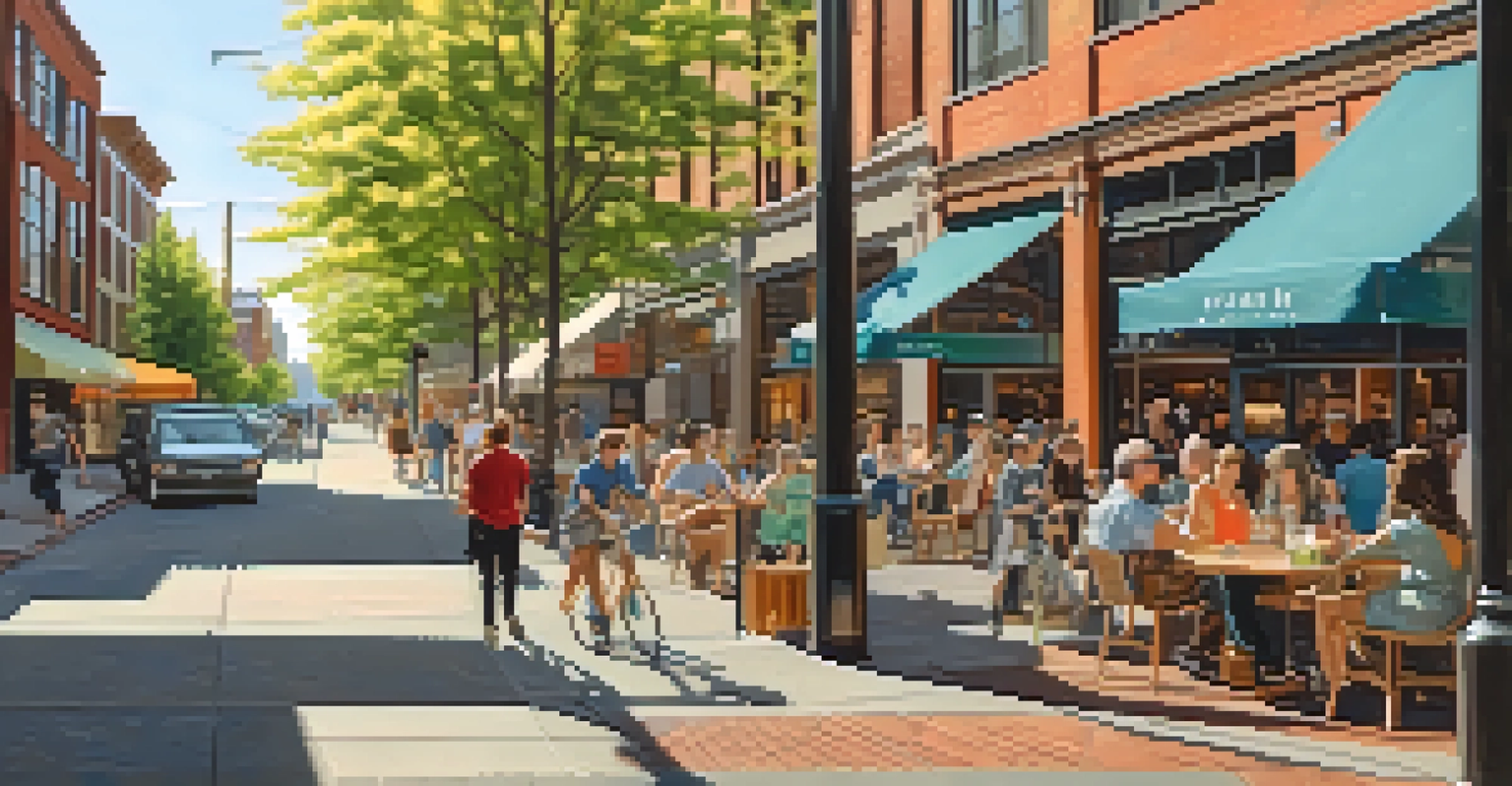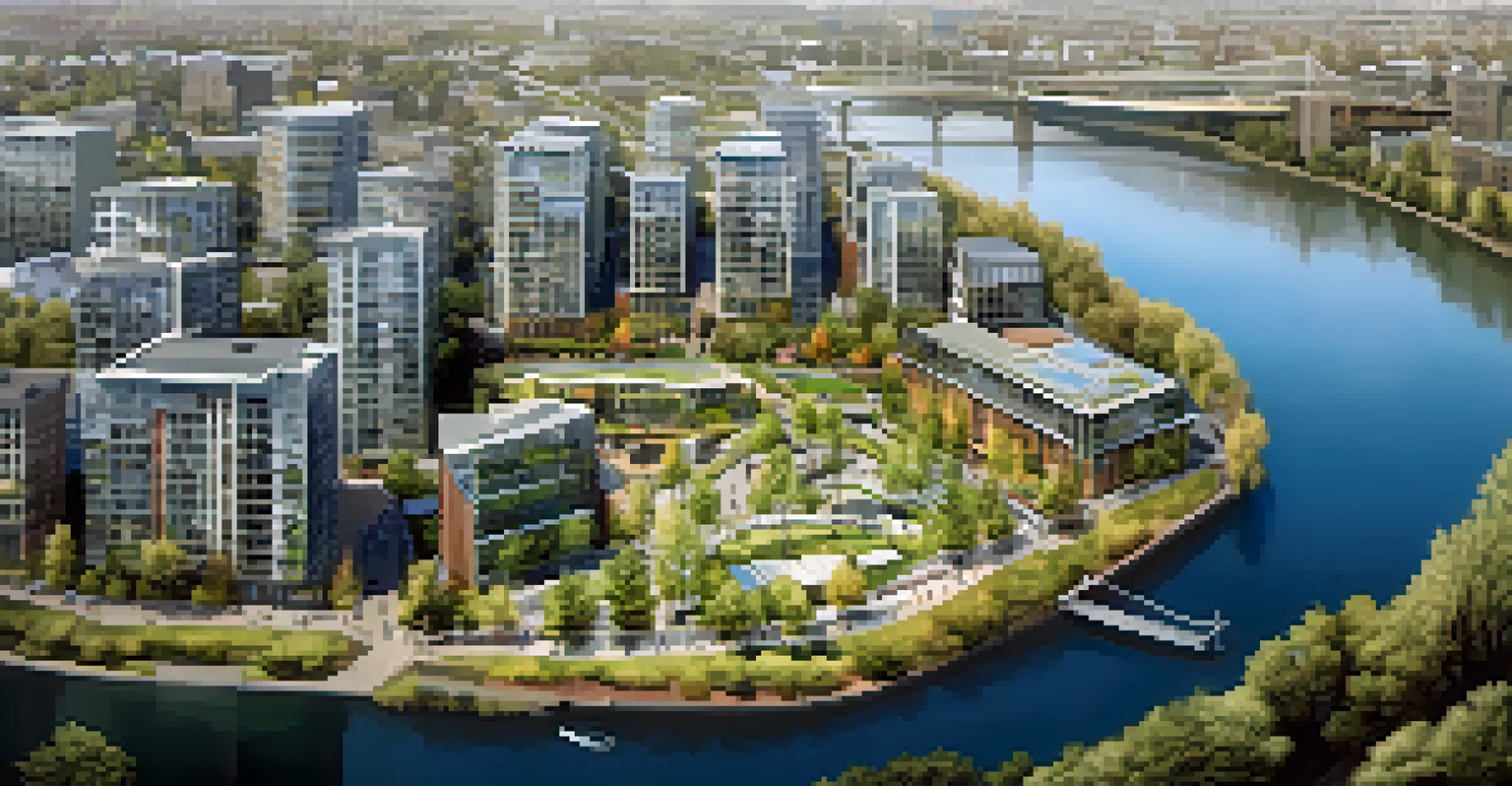Revitalizing Neighborhoods: Portland's Urban Renewal Projects

Understanding Urban Renewal in Portland
Urban renewal in Portland is a proactive approach aimed at rejuvenating neighborhoods that have faced decline. This initiative focuses on improving infrastructure, housing, and public spaces, creating a more vibrant community. By tackling issues like blight and underutilized land, Portland aims to foster economic growth and attract new residents.
Urban renewal is not just about the physical improvements, but about creating a sense of community and belonging.
The concept of urban renewal often stirs mixed feelings, as it can sometimes lead to gentrification. However, in Portland, the focus has been on inclusive development that benefits long-standing residents while inviting new ones. This balance is crucial for maintaining the city’s unique character while ensuring everyone can thrive.
Portland's urban renewal projects are not just about physical improvements; they also aim to enhance community engagement. By involving locals in the planning process, the city ensures that developments reflect the needs and desires of those who live there, creating a sense of ownership and pride.
Key Urban Renewal Projects in Portland
Several urban renewal projects have significantly impacted Portland's neighborhoods. For instance, the Pearl District transformation from an industrial area to a vibrant mixed-use community showcases how creative redevelopment can breathe new life into a space. This area now boasts parks, art galleries, and restaurants, attracting both residents and visitors alike.

Another notable project is the revitalization of the Lloyd District, which aims to enhance its role as a commercial and residential hub. With improved public transportation options and new developments, this area is becoming increasingly desirable. These changes not only support local businesses but also contribute to the overall economy.
Inclusive Urban Renewal Efforts
Portland's urban renewal initiatives prioritize community involvement, ensuring that developments reflect the needs and desires of long-standing residents.
The South Waterfront Project also stands out, featuring modern housing, parks, and easy access to the Willamette River. This development integrates green spaces into urban living, promoting healthier lifestyles and community interaction. Such projects highlight Portland's commitment to sustainability and livability.
Community Involvement in Urban Renewal
Community involvement is a cornerstone of Portland's urban renewal strategy. The city actively seeks input from residents, ensuring that their voices are heard in the planning stages. This collaborative approach fosters trust and transparency, making residents feel valued and respected.
A city is not just a place, but a living organism that requires nourishment through thoughtful planning and community involvement.
Workshops, public forums, and surveys are just a few methods used to gather feedback. By allowing residents to share their ideas and concerns, Portland can tailor projects to better meet community needs. This not only enhances satisfaction but also leads to more successful outcomes.
Additionally, community involvement helps to mitigate potential negative impacts of urban renewal, such as displacement. By prioritizing affordable housing and maintaining existing neighborhoods' character, Portland strives to create inclusive spaces that cater to all residents.
Economic Benefits of Urban Renewal
Urban renewal projects in Portland have significant economic benefits. By revitalizing neighborhoods, the city attracts new businesses and investments, which in turn creates jobs. This influx of economic activity helps boost local economies and provides residents with various employment opportunities.
Moreover, improved infrastructure and amenities make neighborhoods more appealing, driving up property values. This increase in property tax revenue can then be reinvested into community services, such as schools and public safety. It's a win-win situation that fosters growth and prosperity.
Economic Growth Through Revitalization
Revitalizing neighborhoods attracts new businesses and investments, creating jobs and boosting local economies in Portland.
Additionally, urban renewal can encourage tourism by enhancing the overall appeal of neighborhoods. Unique shops, restaurants, and cultural attractions draw visitors, generating revenue for local businesses. This economic growth supports a vibrant city atmosphere, benefiting everyone.
Addressing Challenges in Urban Renewal
While urban renewal presents many opportunities, it also comes with challenges. One significant issue is the potential for gentrification, where rising property values displace long-term residents. This concern highlights the need for thoughtful planning and policies to protect vulnerable populations.
Portland is working to address these challenges by implementing measures such as affordable housing requirements and tenant protections. By ensuring that new developments include options for lower-income residents, the city aims to create inclusive neighborhoods where everyone can thrive.
Additionally, balancing development with preserving the unique character of neighborhoods is crucial. Portland's approach involves engaging with local communities to identify what makes their area special, ensuring that new projects respect and enhance these qualities.
Sustainability in Urban Renewal Efforts
Sustainability is a key focus in Portland's urban renewal projects. The city is committed to creating environmentally friendly spaces that promote a healthy lifestyle. Initiatives include green building standards, energy-efficient designs, and ample public transportation options, reducing reliance on cars.
By prioritizing green spaces and parks within urban developments, Portland encourages outdoor activities and community gatherings. These elements contribute to improved mental and physical health, fostering a sense of connection among residents. It's about creating not just beautiful spaces, but also healthy ones.
Sustainability as a Core Principle
Portland's urban renewal projects incorporate eco-friendly practices, promoting green spaces and reducing the city's carbon footprint.
Moreover, sustainable urban renewal aligns with Portland's broader environmental goals. By integrating eco-friendly practices into development plans, the city aims to reduce its carbon footprint and promote resilience against climate change.
The Future of Urban Renewal in Portland
Looking ahead, the future of urban renewal in Portland appears promising. Ongoing and upcoming projects are set to further enhance neighborhoods, making them more livable and accessible. As the city continues to grow, it will be essential to balance development with community needs and environmental sustainability.
Innovations in urban design and planning will likely play a significant role in shaping Portland's future. Embracing technology and new ideas can lead to more efficient and effective renewal strategies. This proactive approach can ensure that Portland remains a vibrant city for generations to come.

Ultimately, the success of urban renewal in Portland will depend on ongoing community engagement and collaboration. By listening to residents and adapting to their needs, the city can create spaces that reflect the unique character of each neighborhood while fostering growth and prosperity.